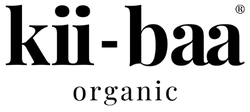Water is the essence of life and plays a fundamental role in human history and evolution. As early as the 6th century BC, Thales of Miletus laid the foundations of Greek philosophy by considering water as the sole basis of matter. Unsurprisingly, the composition and sourcing of the water we commonly use today has changed considerably since then. So, let’s take a closer look at how water impacts the care for our hair and that for our little ones.

Water can be divided into “soft” and “hard” depending on the quantity of minerals it absorbs in as it flows. In contrast to soft water, hard water has higher amounts of dissolved minerals such as calcium and magnesium, and also contains higher traces of metal elements. Although this composition has health benefits when drinking it, it’s not necessarily so with our hair, mainly due to the copper content.
When copper in water is harmful
And where does the copper in the water actually come from? Low levels of copper naturally occur in our drinking water, while the purification processes used by water companies increase its content. However, most of the copper in water comes from hot water tanks or traditional copper pipes used both in our homes and outside. Higher levels of copper can also be found in chemically treated swimming pools.

Copper from our food or drink is used by our body internally. It’s an important mineral, without which the human body couldn’t function properly, and hair could not grow. For example, it is one of the essential elements for the production of melanin, the main pigment found in hair, skin and eye. However, the copper content in the water that rinses over our hair isn’t beneficial – in fact quite the opposite.
Although copper isn’t present in our water in large quantities, it can be very dangerous to our hair. Hair acts like a sponge. Copper gradually accumulates in the hair follicle and the outer layers of the hair, where it undergoes oxidative processes that produce free radicals. These free radicals destroy the hair's natural armour (cuticle) and break down the hair protein keratin, thereby also damaging the hair’s internal structure. This makes the hair thinner, more brittle, and more susceptible to further damage. The hair is less resilient to physical damage from combing, washing, and drying. It breaks more easily, has split ends, and lacks shine.
Also, the copper levels in the hair and the rate of hair damage are correlated because the more damaged the hair is, the more copper it can bind. But the spiral of damage doesn’t end there. The copper deposited in our hair increases the formation of free radicals, thus boosting the damage to our hair when exposed to the sun, for example. Moreover, copper is harmful to all hair, regardless of its type and colour.
It is obvious that damaged hair absorbs the most copper, but copper can easily penetrate the cuticles of healthy, undamaged hair. So, even if babies are born with perfectly healthy hair or are only slowly growing it, it can easily be damaged by something as simple as rinsing the baby’s head with “clean” tap water. Therefore, even the hair of our little ones is not spared from its effects.
The negative effects only worsen over time, taking an average of 3 years for an individual hair to grow back.

How to protect hair from copper in water
The first option to prevent the negative effects of copper on your hair is to invest in a special water filter. While this may seem a bit of an exaggeration, these filters are specifically designed to remove large amounts of minerals and metals in the water, thereby protecting our hair and scalp from their harmful effects.
However, the simplest and most effective way to do this is to look for pure and gentle hair beauty care that, thanks to its ingredients, helps protect your hair and scalp from copper and free radicals.
A miracle known as an almond protein
An almond protein is a revolutionary ingredient that can reduce the damaging effects of copper build-up in hair and scalp. Due to its film-forming properties, it creates a very durable and breathable protective barrier that protects and resists all aggressors, including harmful minerals and metals characteristic especially of hard or chemically treated water.
This awesome protein also absorbs free radicals, has a high antioxidant capacity, and reduces copper binding. It strengthens fine hair, restores damaged follicles, and protects hair from further damage that copper can cause.
The use of products with almond protein has been scientifically proven to produce results that show that the protein makes hair and scalp stronger, healthier, as well as more resilient.
A high percentage of almond protein can be found in the probiotic and prebiotic shampoo from kii-baa® organic.
kii-baa® organic extra mild shampoo
This amazing shampoo promotes hair growth and strength, nourishes the scalp, and due to its high almond protein content, protects against the harmful effects of copper with every use.
Thanks to its probiotic and prebiotic content, the shampoo also helps to strengthen the scalp's natural defences. It revitalizes fine hair, increases its density, and promotes faster growth. The gentle formula, based only on washing ingredients from coconut oil, cleanses gently and does not irritate the skin or eyes.
The chamomile extract and cold-pressed organic oils nourish fine hair and ensure easy and painless detangling. In addition, the shampoo is suitable for the most sensitive scalps from birth, and also helps to restore when affected by seborrhoea.
